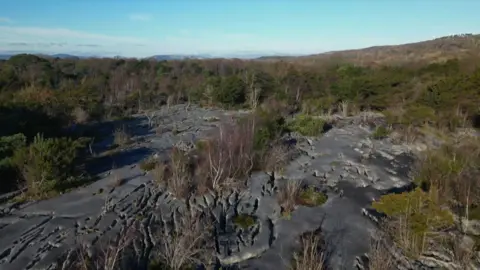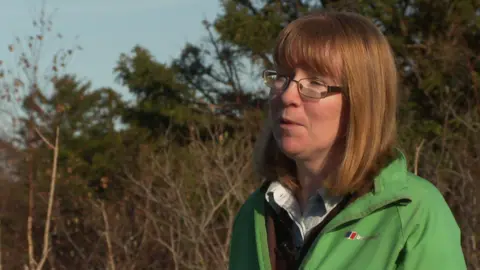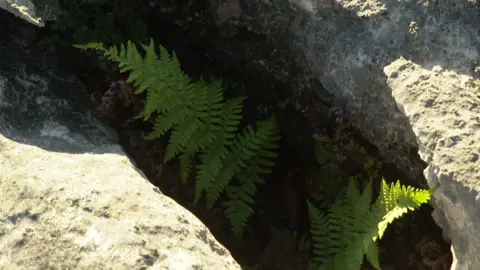Limestone habitats under threat, new study finds
 BBC
BBCLimestone pavements, and the unique plants and wildlife they provide a habitat for, are under threat in north-west England, a new study has found.
Lancaster University has repeated a study, which was originally conducted in the 1970s, to research limestone pavements across the UK, including a large proportion of habitats in Lancashire and Cumbria.
The research has found that some pavements, including those at the Gait Barrows nature reserve in Silverdale, have seen reductions of specialist species of plants growing in them.
Professor Carly Stevens, who conducted the study, said while some areas were improving, others were suffering due to overgrazing or dense vegetation.
"Some areas have had big changes because there are now too many trees.
"Trees are a good thing in a lot of habitats, but in some areas of limestone pavements, the canopy has just become too dense, and it gets too dark and we're losing a lot of species," she said.

Rare plants including ferns and herbaceous species, more commonly found in woodland, grow deep within gaps and cracks of limestone pavements, known as grikes.
Rare orchids can also be found, which provide a habitat for rare snails and butterflies, Prof Stevens said.
"They are beautiful you have got this hidden world of plants," she added.
"There's some really interesting species and really interesting associations which I think makes them a very special place."

The Gait Barrows nature reserve in Silverdale is run by Natural England and has been described as having an "irreplaceable habitat".
Some of its limestone pavements were extracted and many other pavements were damaged across the UK due to quarrying - a practice which is now banned.
But thanks to the study 50 years ago by Stephen Ward and David Evans, and the present university study, areas like Silverdale are now protected.
Prof Stevens said: "I really hope that this study will show people how important limestone pavements are but also that it will provide the beginnings of how we can change our management to protect these sites.
"They are absolutely unique and beautiful and we really need to look after them."
Listen to the best of BBC Radio Lancashire on Sounds and follow BBC Lancashire on Facebook, X and Instagram. You can also send story ideas to [email protected]
